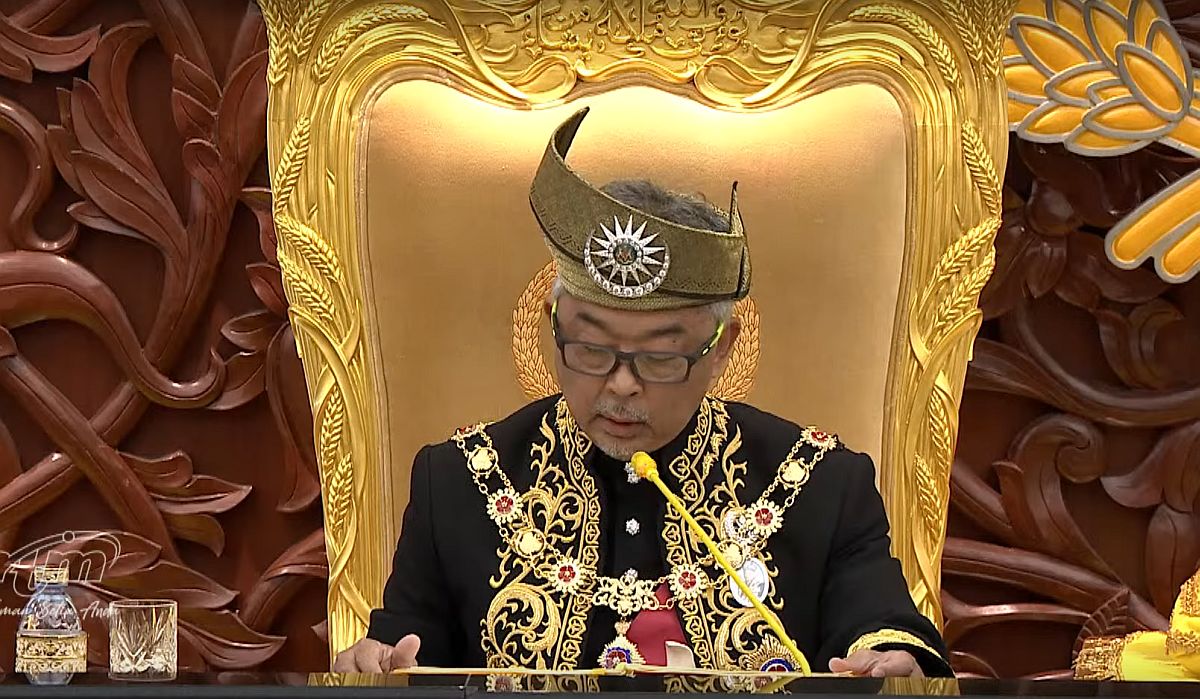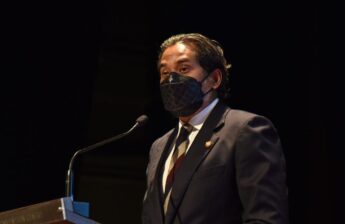KUALA LUMPUR, Feb 13 – The King’s Speech today highlighted the increasing burden of infectious and non-communicable diseases, mental health, and an ageing population as health issues that need to be the government’s priority.
The government’s legislative priorities are typically set out in the King’s Speech prepared by the government. The Yang di-Pertuan Agong’s royal address was made at the opening of the first meeting of the second session of the 15th Parliament today.
On health issues, Yang di-Pertuan Agong Al-Sultan Abdullah Ri’ayatuddin Al-Mustafa Billah Shah said he welcomes efforts to devise a more objective and inclusive strategy to strengthen the public health care system’s preparedness and improve primary health care services, including the provision of better facilities and services to the elderly.
The King said existing work by the Ministry of Health (MOH) to modernise the health care delivery system should be continued, especially in the upgrade of facilities, strengthening service delivery through digitisation, and re-engineering service delivery procedures through a collaborative approach with the private sector and non-governmental organisations.
“Initiatives to curb and facilitate early detection of diseases must also be increased through the Peduli Kesihatan scheme and include an emphasis on mental health,” the King said.
The Peduli Kesihatan Scheme for B40 (PeKa B40) is a health care scheme introduced as part of a government initiative to take early preventive actions from the increasing numbers of NCDs among low-income groups in Malaysia.
The King’s Speech, however, fell short of recognising that the public health care system is in crisis. Several MPs, including government backbenchers, have called for the government to openly admit that the public health care system is in dire straits.
While defending Health Minister Dr Zaliha Mustafa, who is facing angry health care workers demanding for better working conditions in the public health service, Ipoh Timor MP Howard Lee Chuan How said that the first to solving the problem is “admitting there is one”.
Earlier this month, Dr Zaliha issued a general statement addressing health care workers’ concerns, after CodeBlue ran a poll among more than 1,600 government doctors, pharmacists, dentists, nurses, and medical assistants – predominantly MOH staff – that showed 95 per cent believe the public health care system is currently in crisis. Nearly all respondents at 98 per cent expressed anger at the present situation.
The health minister listed issues like health care workers’ welfare and physical and mental wellbeing, the human resource system, equal pay, and career progression as priorities for the MOH, adding that there is “no easy solution”.
She also reiterated efforts to draft the Health White Paper to reform the health care system.
Wan Ahmad Fayhsal Wan Ahmad Kamal, who is Machang MP, mooted open discussions about the public health care system in Parliament through a special select committee.
The Bersatu Youth Chief referred to the United Kingdom’s National Health Service (NHS) crisis that saw nurses, doctors, paramedics, care providers, patients, and experts debating the health and social care minister and Labour’s shadow health secretary live on TV last month over the current state of the NHS.
Muda president Syed Saddiq Syed Abdul Rahman also called for standardised pay for contract doctors, as well as special allowances for all health care workers.
The Muar MP said the government should provide adequate funding to the health care system, not only for facilities needed to improve efficiency, but to also ensure the welfare of health care workers and professionals.
MCA was the first political party to express concern about the crisis in Malaysia’s public health care system. MCA deputy treasurer-general Lawrence Low told the federal government to increase the MOH’s allocation in the upcoming 2023 budget.
Low told the government to take CodeBlue’s survey “seriously”, citing findings from the permanent staff subset that showed 62 per cent of health care workers in permanent positions want to quit their jobs; 41 per cent are willing to go on strike; and more than 70 per cent are overworked, underpaid, and burned out.
The new Budget 2023 is scheduled to be tabled on February 24.








